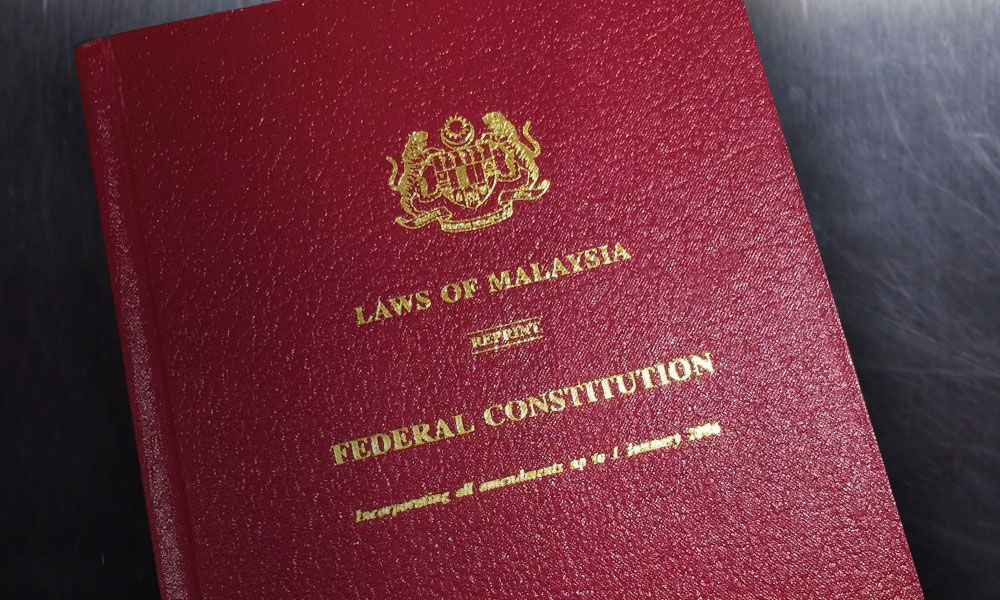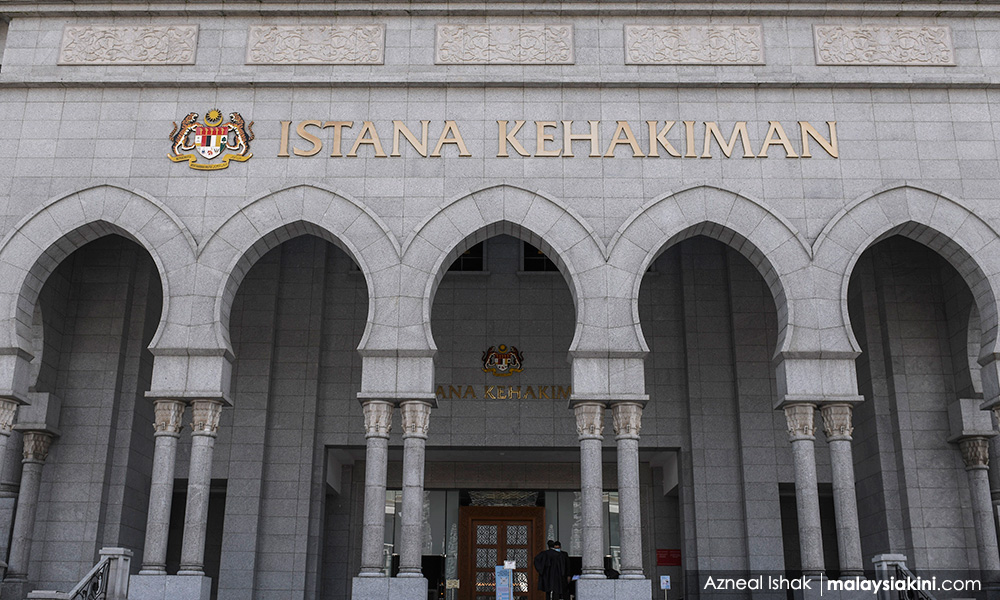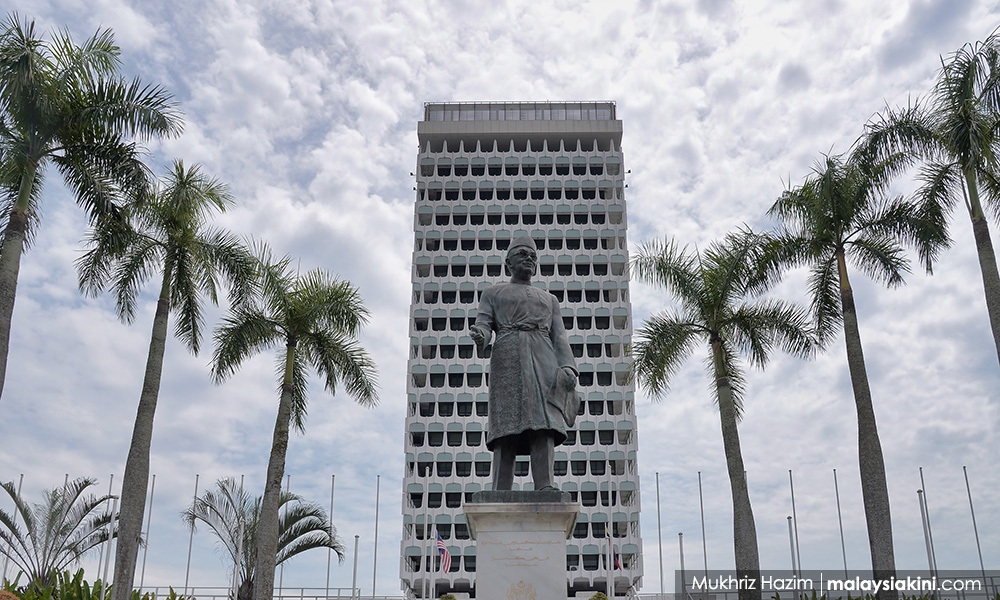On Dec 10 every year, the global community celebrates Human Rights Day. This Dec 10 marked the 75th anniversary of one of the world’s most groundbreaking global pledges, namely the Universal Declaration of Human Rights (UDHR).
The emergence of the doctrine of human rights is premised on the following assumption that the state is in high need to duly protect and preserve human dignity.
As far as the rights of human beings are to be duly honoured and ennobled, they are essentially inherent or inalienable rights that are duly bestowed upon all human beings.
Muslims believe that such rights are duly endowed by the Almighty God as succinctly stated in the Quran, 17: 70 reads “We have ennobled the Children of Adam...”.
One of the key provisions in the UDHR is Article 7, which provides that “All are equal before the law and are entitled without any discrimination to equal protection of the law. All are entitled to equal protection against any discrimination in violation of this Declaration and against any incitement to such discrimination.”
Gaps in Malaysian law
But is our country really free from any form of discrimination, especially gender discrimination?
Article 8 of the Federal Constitution underlies the basic concept of equality or equal protection in Malaysia. It proscribes discrimination against a person or class of persons unless there is a rational basis for such discrimination.
The word “gender” was inserted in Article 8(2) of the apex law after Malaysia ratified the International Convention on Elimination of Discrimination Against Women (Cedaw) as part of Malaysia’s obligation. Despite such a constitutional amendment, gender discrimination is unfortunately still a common occurrence.

Though the Industrial Relations Act 1967 (Act 177) contains provisions outlawing discrimination, they are too limited in their scope and application.
Section 5(1)(c) of the Act provides that employers shall not discriminate against any person regarding employment, promotion, any condition of employment, or working conditions on the ground that he is or is not a member or officer of a trade union.
The inefficacy of law on discrimination in the employment sector can also be found in the Employment Act 1955.
Section 60L(1) of the Act merely provides that employees (local or foreign) may file a complaint to the director-general on the grounds that he is being discriminated against in relation to a foreign or local employee (as the case may be) in respect of the terms and conditions of his employment.
Apart from protection from discrimination on account of the employee’s trade union membership or nationality, there are no specific statutes enacted for the sole purpose of prohibiting discriminatory practices in the workplace.
Court precedents
In Malaysia, in the case of Beatrice Fernandez v Sistem Penerbangan Malaysia & Anor., the service of a flight stewardess in MAS was terminated on the grounds of her pregnancy.
The employer sought to defend such a termination by arguing that it was made per a collective agreement that was binding on all stewardesses of the airline.
The Federal Court held, inter alia, that the constitutional law only addresses the contravention of an individual’s rights by a public authority, hence any infringement of a private individual by another private individual is not protected by the Federal Constitution.
In the court’s own words: “The very concept of a “fundamental right” involves state action. It is a right guaranteed by the state for the protection of an individual against arbitrary invasion of such right by the state. Where the invasion is by another private individual, the aggrieved individual may have his remedies under private law, but the constitutional remedy would not be available.”
The decision was heavily criticised. Critics argued that the collective agreement which provided a different retirement age for different categories of female employees should have been held tantamount to gender discrimination.
Hence, the court should have also ruled when the service of a flight stewardess in MAS was terminated on the grounds of her pregnancy, it clearly violated the constitutional protection duly guaranteed under the highest law of the land.
In a country which places its apex law as the supreme law, the very concept of a “fundamental right” should not be narrowly confined to infringement entailing state action only.

With the greatest respect, such a restrictive and pedantic interpretation of the highest law of the land would only do a great disservice to the very principle of constitutional supremacy!
In Noorfadilla binti Ahmad Saikin v Chayed bin Basirun and Ors, the High Court ruled that the employer’s refusal to employ a woman on the grounds of pregnancy alone will be considered as a form of gender discrimination, thus unconstitutional for violating Article 8 of the Constitution.
In Airasia Berhad v Rafizah Shima binti Mohamed Aris, the Court of Appeal held that a provision in a training agreement did not discriminate against the rights of women for it did not restrain marriage and/or prohibit pregnancy if the respondent completed her training in the manner stipulated in the agreement.
The fact shows that on Oct 19, 2006, the respondent executed a training agreement to undergo an Engineering Training Programme (Training Agreement) for four years with the appellant.
A material term in the Training Agreement was Clause 5.1(4) which reads as follows: “Clause 5.1 is a fundamental term and condition of the Agreement that none of the following events or circumstances shall occur after execution of this Agreement. The occurrence of any of the following events and circumstances shall constitute a repudiatory of the Agreement”.
In June 2010, in the course of the training period, the respondent informed the Appellant that she was pregnant but wished to continue her training as she was only due to deliver at the end of 2010.
Instead of being sympathetic to her, the appellant decided to terminate the Training Agreement and the respondent’s employment on July 1, 2010.
Ball is in govt’s court
The provisions of Cedaw were referred to in that case. Cedaw is an international convention that affirms the principles of human rights and equality for women around the world. Many view Cedaw as an “international bill of rights for women”.
It defines what constitutes discrimination against women and sets up an agenda for national action to end such discrimination.
A key principle under Cedaw is the obligation of the state to implement the convention thus giving effect to the Convention at the domestic level.
Malaysia is a signatory to Cedaw and it acceded to the Convention on 5 July 1995, but it has yet to expressly incorporate the provisions of Cedaw into domestic law by an Act of Parliament.

The decision by the Court of Appeal in the AirAsia case has been subject to opprobrium. Apparently, the Court of Appeal had unfortunately misplaced the issue by misdirecting itself. The court, in my view, had asked an erroneous question.
The question that should have been asked was “Did a training agreement contain any element of discriminatory practice against the rights of women?”
By misdirecting itself, the Court of Appeal, with due respect, had failed to properly address its mind on the clear-cut issue of gender discrimination.
Anyway, Malaysia should either amend the Employment Act 1955 or legislate a specific law like the UK’s Equality Act 2010, which expressly provides that it is an act of discrimination if a woman is treated unfavourably because of her pregnancy.
In Nurul Shamimi Zainul Ariffin v Universiti Pertahanan Nasional Malaysia & Anor, the court in Malaysia, once again, misdirected its mind by holding that individuals have the choice to walk away from agreements that infringe his or her constitutional rights.
With due respect, such flawed reasoning seems to indirectly undermine the constitutional protection duly enshrined in our supreme law.
Malaysia adheres to the doctrine of constitutional supremacy, hence - in simple terms - the Constitution should trump anything. Otherwise, constitutional protections would be meaningless, ineffective, and illusory.
In response to the news concerning the ban on wearing “tudung” imposed by hotel owners on employees, proposals to amend the Employment Act 1955 were put forward by the Human Resources Ministry to address, among others, the issue of workplace discrimination.
The ban had rightfully sparked a debate about the issue of workplace discrimination, and the proposal for amendment was certainly a much-needed move to fill in the gaps in our existing laws
Unfortunately, hitherto the proposed amendment has not been carried out.
Assuming this case (the act of prohibiting employees from wearing tudung) reaches the court, it would probably trigger Article 8 of the apex law (right to equality) of the Federal Constitution and possibly Article 11 as well.
Without any iota of doubt, such a discriminatory practice clearly violates Article 8 of the apex law but pessimists tend to argue that the aforementioned case is bound to fail if it entails an infringement of an individual’s legal right by another individual/or entity (eg: a private sector employer)
Such pessimism is undergirded by the Federal Court’s decision in Beatrice a/p AT Fernandez (supra). - Mkini
MOHAMED HANIPA MAIDIN is a former deputy minister in the Prime Minister’s Department (Legal Affairs) and former Sepang MP.
The views expressed here are those of the author/contributor and do not necessarily represent the views of MMKtT.




No comments:
Post a Comment
Note: Only a member of this blog may post a comment.